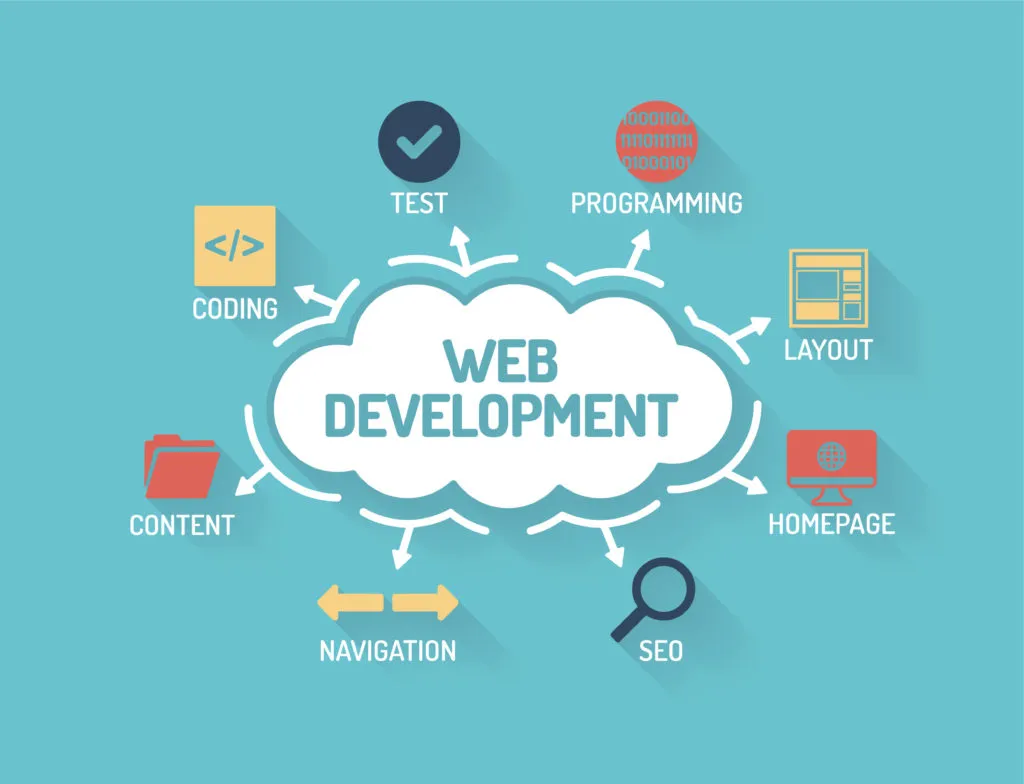
Web development in the present era of digitalization has emerged as one of the most critical skills and sectors influencing the way people communicate, interact, and do business online. Each website you visit, every online store you shop at, and every internet service you access is the product of careful and deliberate web development. It is the integration of creativity, technical know-how, and user-centered design to create websites that are usable, engaging, and accessible to millions of people globally.
What Is Web Development?
Fundamentally, development is a process of building and hosting websites. It ranges from coding the fundamental structure of a webpage to designing the layout, creating interactive features, and making it run well on any device. Web development is generally divided into three types:
Front-End Development – This involves the component of the website that users interact with directly. Front-end developers employ languages such as HTML, CSS, and JavaScript to create a site’s appearance, feel, and functionality.
Back-End Development – This includes the server-side of a website. Back-end developers handle databases, servers, and applications to make sure that websites work smoothly behind the scenes. PHP, Python, Ruby, and Node.js are some of the most widely used languages in back-end.
Full-Stack Development – Full-stack developers deal with both the front-end and back-end of websites, so they have a full sense of the process.
Why It Matters
The role of web development cannot be understated. A website is usually the initial impression that a business leaves on its customers. A poorly designed or slow-loading website is likely to drive users away, but a well-structured, attractive website can instill confidence, enhance user experience, and invite visitors to engage more profoundly.
For companies, development also offers a space to promote services and products, engage with customers, and drive conversions. Either through an e-commerce website, blog, or corporate website, companies are dependent on sound development in order to stay competitive in the online world.
Important Components
In order to construct a successful website, many aspects of development need to converge:
Responsive Design: Since most users are surfing using mobile devices, responsive design allows websites to align perfectly with various screen sizes.
Performance Optimization: Optimized loading speed is crucial. Speed is a major determinant of user satisfaction and even search engine optimization.
SEO Integration: Search engine optimization is a part of contemporary development that enhances website visibility to prospective visitors.
Security: Safe coding techniques and features such as SSL certificates safeguard users and companies from cyber threats.
Accessibility: Accessible development makes it possible for websites to be accessible to everyone of every ability, including those who are visually or hearing impaired.
Evolution of Web Development
With the passage of time, development has changed by leaps and bounds. Websites were static, with limited interactivity in the early days of the internet. Today, websites are dynamic, highly interactive, and more like functional applications. React, Angular, and Vue.js have transformed front-end development, whereas Django and Laravel have made back-end programming simpler.
Besides, innovation in cloud hosting, APIs, and artificial intelligence is redefining the development future, enabling developers to create more scalable, smart, and user-centric platforms.
Career Opportunities in Web Development
As businesses and individuals increasingly rely on digital solutions, career opportunities in web development are growing. Developers are in demand across industries, from tech startups to multinational corporations. Roles include front-end developers, back-end developers, UX/UI designers, and full-stack engineers.
Freelancing is yet another career path in web development, enabling developers to collaborate with clients across the globe and acquire rich experience. With opportunities for flexibility, competitive pay, and the ability to contribute to meaningful projects, web development is a very lucrative career.
Future Trends in Web Development
In the future, the following trends will define the future of web development:
Progressive Web Apps (PWAs): PWAs integrate the strengths of web and mobile applications, providing speedy performance and offline capabilities.
Voice Search Optimization: With the popularity of smart speakers, voice search optimization is becoming an aspect of contemporary web development.
Artificial Intelligence and Chatbots: AI features are being incorporated into websites to deliver customized user experiences and streamline customer support.
Web3 and Blockchain: Web development is being shaped by decentralized applications and blockchain-based platforms.
Increased Cybersecurity: With an increase in cyber threats, security will be on top of every web development endeavor.
Conclusion
With digital presence being the norm in the modern world, web development is what holds the internet together. Not only does it aid businesses in gaining credibility, but also facilitates people to exchange ideas, goods, and services with the world. With technology advancing by the minute, web development will continue to change, introducing more innovation, efficiency, and creativity into the online world.
Whether you’re a business owner looking to build a website, a professional aiming to enter the tech industry, or simply a curious learner, understanding web development is a valuable step toward embracing the future of the digital world.




